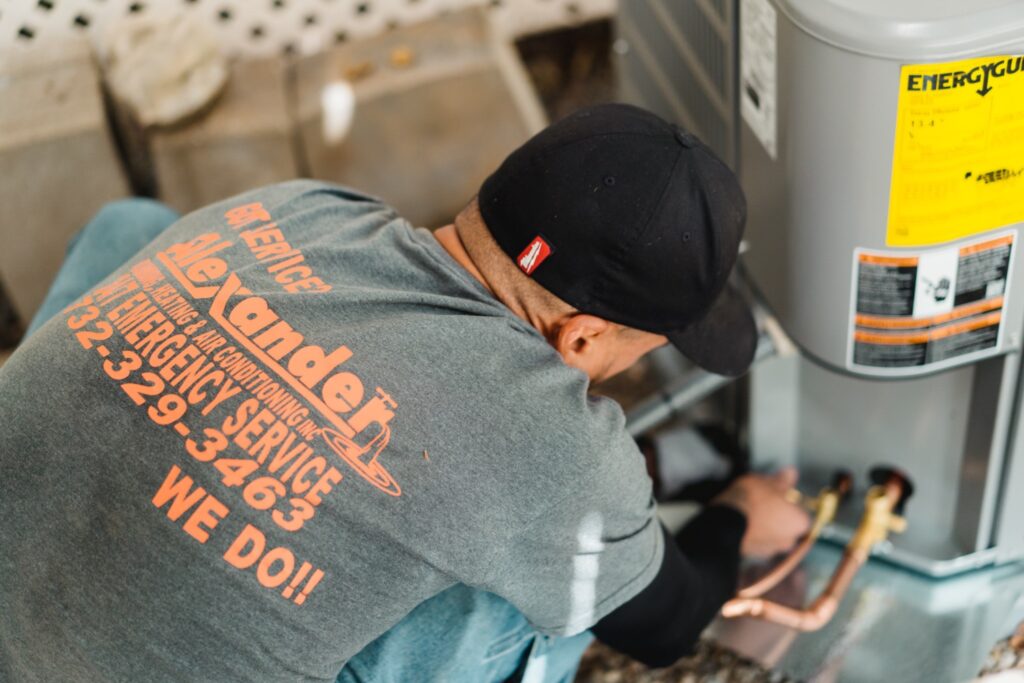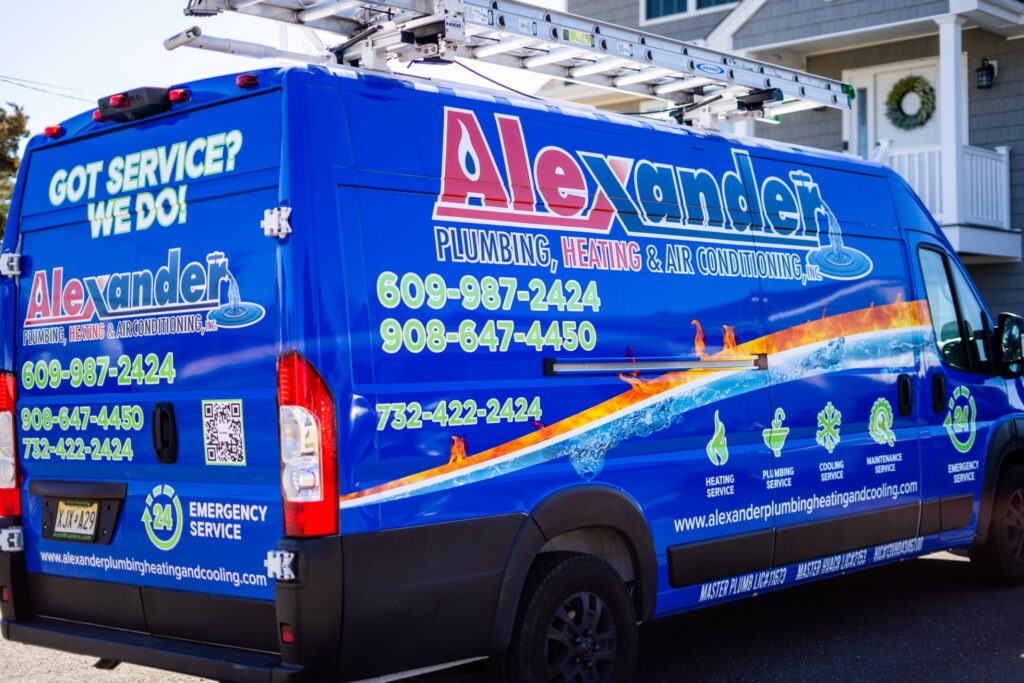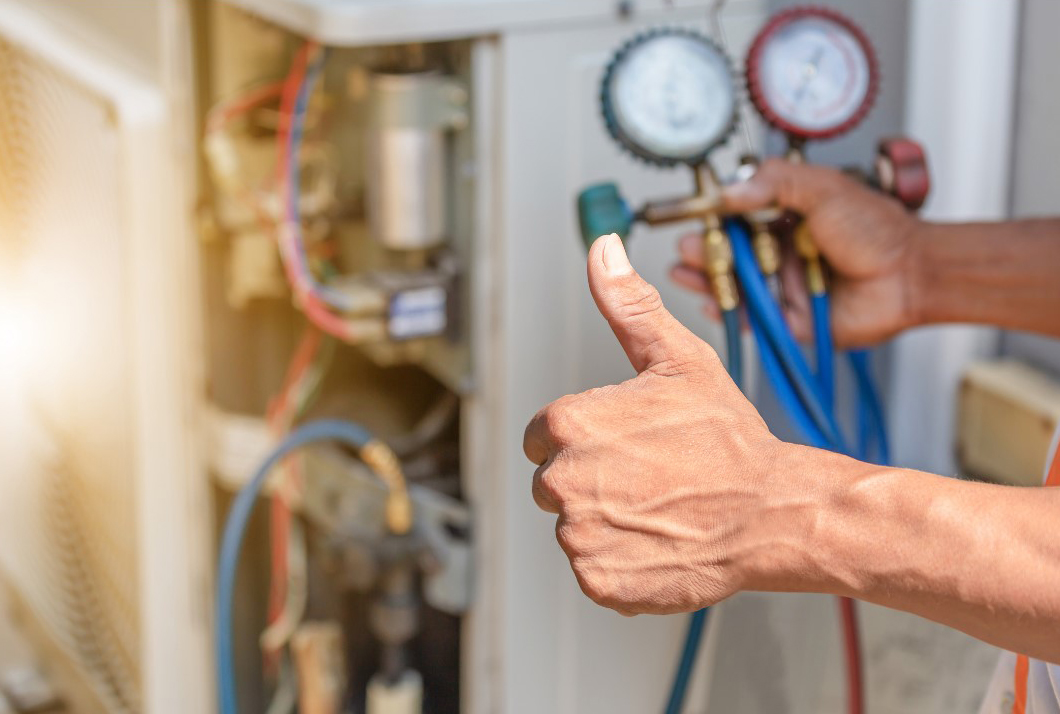A sudden jump in your air conditioning bill can feel frustrating—especially during peak summer months when you’re just trying to stay cool. But your heating bill and cooling costs are closely related, especially in systems where heating and cooling are combined (like central HVAC). Here are a few common reasons you may be paying more than usual:
1. Poor Insulation
Insulation is your home’s first line of defense against outdoor heat. When your walls, attic, windows, or doors are poorly insulated, cool air produced by your AC escapes, and hot air from outside finds its way in. This makes your system run longer and harder to maintain your desired indoor temperature. Over time, this constant strain not only spikes your energy bills but also wears down your HVAC components. A professional energy audit can pinpoint areas of heat transfer and recommend sealing, weatherstripping, or upgraded insulation to improve efficiency.
2. Aging HVAC Systems
Most air conditioning systems are designed to last about 10–15 years with proper maintenance. However, as they age, internal components wear out and become less efficient. Older units often have outdated technology that doesn’t meet today’s energy-efficiency standards, meaning they require more electricity to do the same job. If your system is approaching or exceeding its expected lifespan, it may be time to consider a high-efficiency replacement unit, which can significantly lower your monthly energy costs.
3. Clogged Air Filters
Your HVAC system depends on steady airflow to function efficiently. When air filters become clogged with dust, pollen, pet hair, and other debris, airflow is restricted. This forces your system to work harder to push air through, increasing energy consumption and reducing cooling performance. Dirty filters can also impact indoor air quality and contribute to respiratory issues. To avoid this, filters should be inspected monthly and replaced every 1–3 months, depending on usage and the presence of pets or allergies in the home.
4. Thermostat Mismanagement
Your thermostat settings play a huge role in your energy usage. Many homeowners unintentionally increase their energy bills by setting the temperature too low—especially during peak hours—or frequently adjusting the thermostat throughout the day. These fluctuations make your AC cycle on and off more often, which consumes more electricity. To maintain comfort and efficiency, try setting your thermostat at 78°F (26°C) when you’re home and increasing it by 7–10 degrees when you’re away. A programmable or smart thermostat can automate this process and reduce wasteful energy use.
Many homeowners don’t realize that a neglected HVAC system also increases winter heating bills. When your equipment isn’t optimized, it’s inefficient year-round.

How to Reduce Heating and Cooling Costs Year-Round
Whether it’s July or January, smart habits and preventative care can help you reduce heating costs and cooling expenses alike. Below are actionable steps to lower both bills:
- Upgrade to a programmable thermostat
These devices learn your habits and automatically adjust the temperature based on your schedule. You avoid unnecessary heating or cooling while you’re asleep or away. This small change can lead to big energy savings over time.
- Seal leaks and insulate
Drafts around windows, doors, and ductwork can cause conditioned air to escape. Sealing these gaps and adding insulation helps your HVAC system work less to maintain the desired temperature. Less energy use means lower monthly bills.
- Clean and replace filters regularly
A dirty air filter forces your HVAC system to work harder, decreasing efficiency and increasing costs. Replacing or cleaning your filters every 1–3 months can significantly improve airflow and performance. It also helps maintain better indoor air quality.
- Shade your window
Direct sunlight through windows can drastically raise indoor temperatures. Use blinds, curtains, or solar shades to keep rooms cooler without overworking your AC. This simple tactic also protects furniture and flooring from UV damage.
- Schedule professional maintenance
Regular HVAC tune-ups—ideally once before summer and once before winter—help detect issues early. A technician can clean components, check refrigerant levels, and ensure your system is running efficiently. This preventative care keeps performance high and costs low.
- Use ceiling fans wisely
In summer, set your fan to rotate counterclockwise to create a wind-chill effect. In winter, reverse the direction to push warm air down from the ceiling. This improves comfort and reduces reliance on your HVAC system in both seasons.
By taking proactive steps now, you not only keep your summer cooling costs in check but also ensure lower heating bills once the colder months arrive.
Why Heating System Inspections Matter Even in Summer
You might think of a heating system inspection as a cold-weather chore, but summer is actually a great time to get ahead of the game. HVAC companies tend to be less busy with heating work in the warmer months, meaning you can schedule service faster and often for less.
Here’s why a heating system inspection benefits you even when it’s hot out:
- Prevents winter surprises
An inspection in the summer gives you time to catch issues before cold weather hits. No one wants to deal with a failed furnace during a snowstorm. Early detection helps you plan repairs on your terms, not in an emergency.
- Improves efficiency
Technicians can clean burners, check airflow, and inspect heat exchangers to ensure optimal performance. A cleaner, tuned-up system runs more efficiently and uses less energy. This means lower heating bills when winter arrives.
- Extends equipment lifespan
Regular service helps prevent breakdowns and keeps your system running smoothly for years. Maintenance reduces wear and tear on expensive components. That means fewer costly repairs and more years of reliable comfort.

- Keeps your home safer
Inspections can catch dangerous issues like carbon monoxide leaks or faulty wiring. Technicians ensure that combustion is safe and that no gas leaks are present. Protecting your household’s health is worth the proactive check.
Planning ahead with an inspection also helps balance your annual home maintenance budget. You avoid last-minute repairs and make the most of every dollar spent on home comfort.
Keeping your AC and heating systems efficient is about more than just staying comfortable—it’s about smart home ownership. From filter changes to full heating system inspections, small actions can have a big impact on your utility bills. And remember: what you do in the summer affects your winter heating bill too.
For trusted HVAC service that helps you reduce heating costs and optimize your system year-round, contact Alexander Plumbing and HVAC. Our expert team provides full-service heating, cooling, and plumbing care throughout New Jersey, ensuring your home stays efficient, comfortable, and cost-effective in every season.


